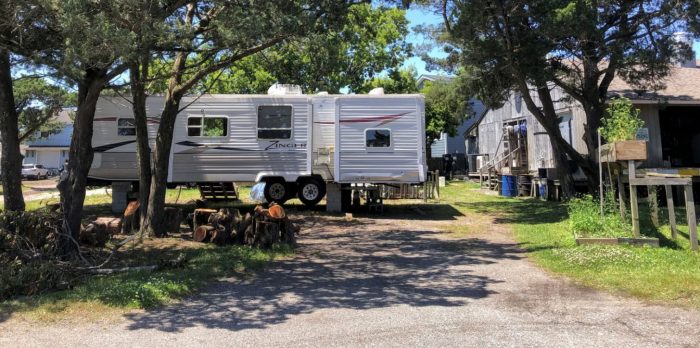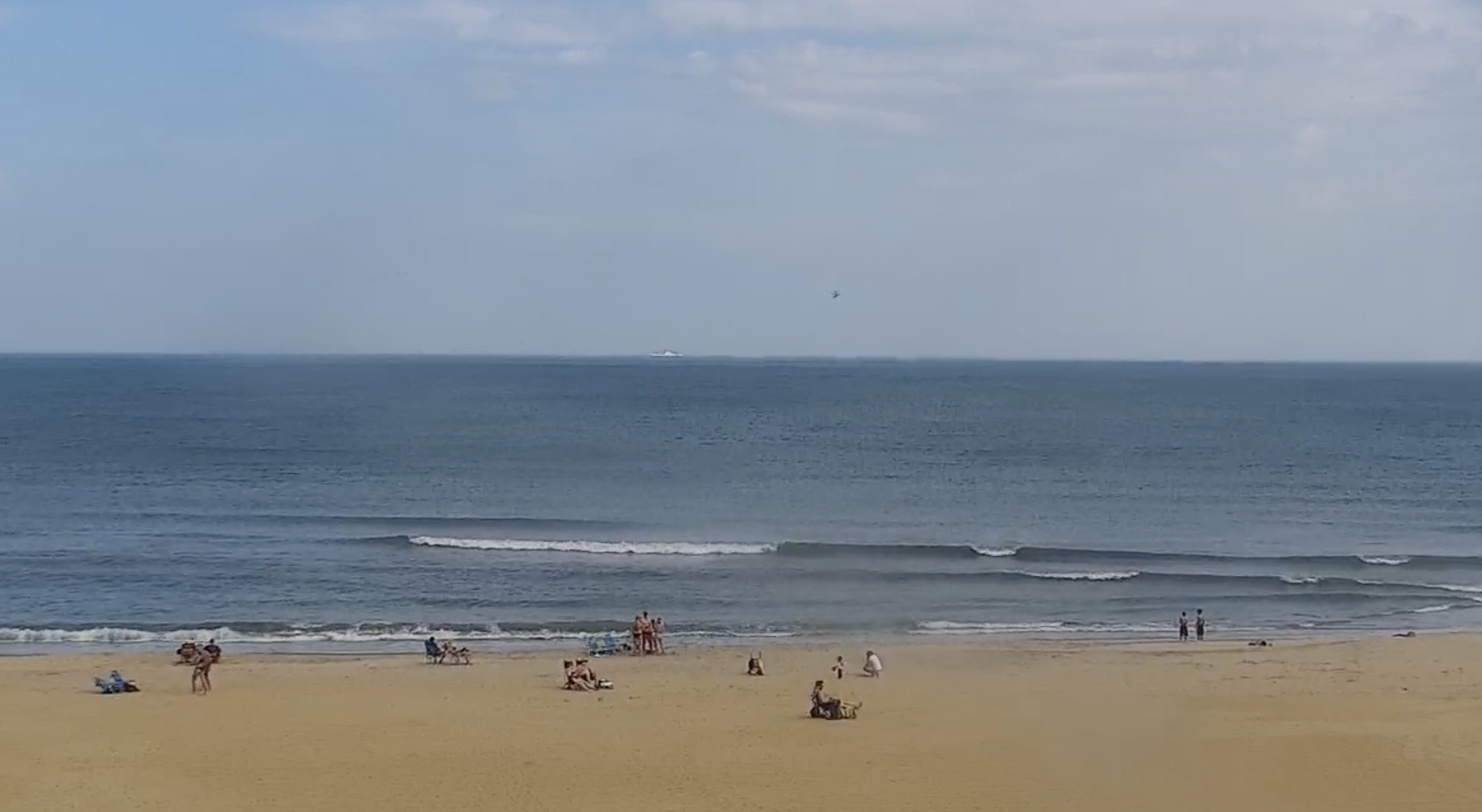
The Ocracoke Affordable Housing Coalition is looking for a few good houses.
Actually, they’re looking for many more than that because there is an acute need for affordable housing for essential workers on Ocracoke.
The group formed after Hurricane Dorian in September 2019 and before the COVID-19 pandemic hit in early 2020 to try to find solutions to this problem for which Ocracoke is not alone.
Affordable housing solutions were the topic of a second presentation on May 9 by Sonyia Turner, a project manager with the UNC School of Government of the Development Finance Initiative, who had given the presentation at the Hyde County Commissioners meeting a week earlier on May 2.
This time about 20 islanders attended in person. More watched online via the Hyde County Public Information Facebook page live streaming.
Like many resort areas, including the Nags Head area, Ocracoke’s work force is not as plentiful as in pre-Dorian, pre-COVID days. Turner said half the houses that had been rented by workers (94 houses) were lost to Dorian’s floodwaters, leaving only 54 homes for year-round renters, which is less than 5% of the total housing stock on the island.
Without the usual complement of seasonal workers, some island businesses have had to curtail their hours this year as a result of reduced staff, noted islander Katy Mitchell, who owns the Magic Bean Coffee Bazaar.
“Creative thinking is what we need most,” said Sara Teaster, the grant administrator for Hyde County, who led the meeting. “We have to have out-of-the-box thinking.”
The greatest need, Turner said, is for year-round monthly rents from $650 to $1,000 plus utilities for essential workers on Ocracoke to afford to work here.
The median income for a family of four in Hyde County is $58,000, and Turner said all of the essential workers on Ocracoke – those who work in the school, for the county, the ferry and in the hospitality industry — make less than that.
The median house sales price on Ocracoke is $445,000, but an affordable home price for island workers should be no more $180,000, she said. That means that all essential workers are renters.
Turner presented some possible ways to help.
A “local hero,” or someone who purchases or donates land or buildings to be built on or converted into affordable housing.
One model that has worked in other communities would entail a nonprofit land trust, Teaster explained. In this, the land is owned by the trust and people can buy a home with a 99-year lease option for the land. This model allows for homeowners to develop some equity or the homes could remain as just rentals.
A private and public partnership, such as the Northside Neighborhood Initiative, developed more than 40 for-sale and for-rent housing units in Chapel Hill.
Another idea would be a rental-rehabilitation incentive loan program for below-market loans for small-scale, scattered-site rental projects, rehabbing dilapidated units within to be rented to low- and moderate-income tenants.
Sue Rockel, owner of Native Seafood, described a similar solution employed in Scotland, involving a revolving loan fund for rehabbing houses.
“I love this idea,” Teaster said. “This could be used in combination with a land trust.”
Austin Daniel, owner of Stockroom Street Food, suggested that rental properties that aren’t renting as well as others might be turned into year-round or seasonal rental units.
One audience member noted that some places in Colorado, while grappling with the upsurge of homes converting to AirB&Bs in the last two years, offered stipends to these owners to switch to seasonal or year-round rentals to make up the difference. Moreover, some towns around the country have even put a short-term moratorium on the conversion of houses into weekly rentals.
Teaster, who helped with the Affordable Housing Coalition before she began working for the county, noted that there are 20 unoccupied/unused homes in the village. Perhaps some of these homes could be rented to low- to moderate-income islanders in exchange for the islanders fixing them up as needed.
“The Ocracoke Affordable Housing Coalition or some iteration is going to have to start meeting and start working on this again,” she said after the meeting.
One of the first things she hopes the group can do is to send letters to all property owners on the island to ask about their ability to convert their weekly rental homes and those that have sat vacant since Dorian into year-round places.
“It really could be a win-win situation for both the property owner and potential tenants,” Teaster said.
Property owners who might have lots or homes that could suit these needs, or anyone wishing to assist the Ocracoke Affordable Housing Coalition with projects in the future, are asked to reach out to the coalition at ocracokeahc@gmail.com or to Teaster at steaster@hydecountync.gov.














